Image: The Colossus of Rhodes (280 – 226 B.C.). This 33 m high bronze of the sun god Helios is the archetype for the personification of liberty. It was a Wonder of the Ancient World.
Those democracies that have evolved along English lines, share some commonalities which make them exceptional in many ways. There are perhaps five key English agreements which set these democracies apart from others, in terms of the liberty experienced by their people. Of course, that is not to say that other governance systems do not have similar protections, such as alternatives to habeas corpus in civil law jurisdictions, but the journey will have been different. What is special about the British derived democracies is that they have largely evolved organically and empirically, rather than drawn from abstract ideas. This has meant, for instance, that there has never been any attempt to unite opposing concepts like liberty, egalitarianism, and fraternity. Rather, tradition, mores, pragmatism, and compromise have served as guiding principles.
Australians largely take their freedoms for granted, not realising the importance of the unbroken chain back to the English common law, the key agreements, and the system of governance which underpin that liberty. How fragile are those freedoms? It is not inconceivable that they could disappear in a generation if the cultural memory is lost, supplanted by disruptive ideologies or loss of pride in our Western inheritance.
The five key Charters are summarised below, before being expanded individually.
- Magna Carta (1215, 1216, 1217, finally 1225) – guaranteed private ownership and guarded against false imprisonment,
- Petition of Right (1628) – no taxation without Parliamentary approval, no imprisonment without cause, no martial law in peace time, and no compulsory quartering of soldiers.
- Habeas Corpus (1640, 1679, 1816 & others) – strengthened Magna Carta’s provisions against unlawful imprisonment or seizure of assets. Reduced the power of the Monarch’s Council and introduced heavy penalties if defied.
- Bill of Rights (1689) – primacy of Parliament over the Monarch. Guaranteed Parliamentary rights, such as free speech without fear of prosecution.
- Act of Settlement (1701) – increased independence and transparency of Judiciary, Monarchy, and Parliament. Isolation from foreign mores, potentially introduced by those not raised breathing the free air of England. Anchored the Monarch to the territory of the realm. Enabled the seamless parliamentary union of Scotland, England, and Wales.
Magna Carta (1215, 1225)
The first document, and the genesis of English liberty, is Magna Carta. While Magna Carta is much referenced, it is little understood in detail. To be sure, it is an agreement between the King and his Barons, affecting a small fraction of the population (most of the population was tied to their lord and his land), but it laid out one or two precepts which have echoed down the ages. Here is clause 39, translated from the Latin in which it was written:
No free man shall be seized or imprisoned, or stripped of his rights or possessions, or outlawed or exiled, or deprived of his standing in any other way, nor will we proceed with force against him, or send others to do so, except by the lawful judgement of his equals or by the law of the land. To no one will we sell, to no one deny, or delay right or justice.
Clause 39 of Magna Carta
Remarkably, the sentiments expressed in this clause are still not universal in the world. For instance, the supremacy of private property as a natural right is still not enjoyed by billions of people. Many regimes hold citizens arbitrarily for political reasons… because they can.
Often the Magna Carta of 1215 is cited, but it is the 1225 Great Charter which was the first to be legally binding. The circumstances surrounding Magna Carta are quite complex.
Magna Carta is seen by some as the first compromise between Anglo-Saxon custom and the feudal law imposed by the Norman overlords. Anglo-Saxon communities were rather democratic (for their time) with a governing assembly called the “Thing.” Indeed, the “Thing” is seen as the precursor of Parliament and the word has the same essential meaning as in modern English, as in an assembly of parts to make a thing. Another word containing the Germanic root is hustings (house – thing or council).
Magna Carta has been superseded but the key clauses and sentiment live on in the Charters which followed. It is nonetheless the cornerstone of English style liberty and governance. The meeting in 1215, was perhaps the first English Parliament in the sense we know it today, but not a democracy by any means.
Instability, break with Rome and the rise of the commoner
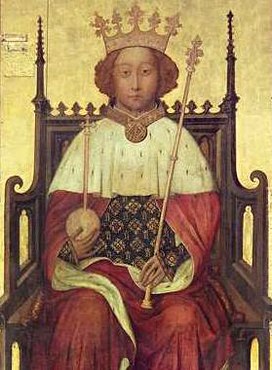
Wat Tyler was killed during negotiations at Smithfield.
The Black Death entered England in 1348, taking up to an estimated 50% of the population with it. This weakened existing feudal power, culminating in the peasants’ revolt of 1381. The uprising was brutally put down by Richard II (Magna Carta was only for freemen). From 1399 onwards succession became muddied, with Henry IV seizing the throne on an ambit claim. This instability lasted a century but was finally concluded, after many bloody battles, at Bosworth in 1485, with Henry VII Tudor seizing control of England.
In Tudor England Magna Carta was not much mentioned, and Henry Tudor’s son Henry VIII rode roughshod over much of England’s liberty. He did, however, break with Rome providing the next vital step in the evolution of English law and governance. A period of religious intolerance and persecution followed, with the particular persecuted faith changing with the belief of the reigning monarch. Elisabeth I (r. 1558-1603) put an end to religious persecution, advocating tolerance. The Church of England was to be protestant in core belief, but hierarchical and traditional in ritual. This did not suit the puritans, many of whom famously sought religious freedom elsewhere, creating colonies of North America.
Petition of Right (1628)
In 1603, the Stuart dynasty began in England with a King of two realms in one person – James I of England and James VI of Scotland. In 1625, his son Charles I ascended the throne. Charles I was a firm believer in the divine right of Kings, which would be his undoing.
This period precipitated the Petition of Right in 1628, in which the English Parliament complained that the King had breached the law. The petition sought recognition of four principles.
- No taxation without consent of Parliament,
- No imprisonment without cause,
- No quartering (food and lodgings) of soldiers on subjects,
- No martial law in peacetime.
Charles was fighting an expensive war with Spain. He compelled gifts from his subjects and imprisoned those who would not comply. In 1627 five landowners were imprisoned for refusing to lend money to the King. A subsequent court found their imprisonment lawful, “by special command of the King.” Parliament found this to be a violation of the terms of Magna Carta and petitioned the King to observe the rule of English law.
In 1642, the conflict between Parliament and the King turned into military hostilities. Oliver Cromwell rising to command the Parliamentary forces. Charles I was initially defeated in 1645 at the battle of Naseby. The Parliament respected the institution of the Monarchy but required the King to observe the law and the primacy of Parliament. A second, and more brutal, civil war broke out with Charles I decisively defeated a second time at Preston. This time the King was executed (1649), and the institution of the Monarchy suspended for twelve years.
The influence of Protestantism on this conflict cannot be underestimated. Oliver Cromwell, the man who assumed the title of “Lord Protector of the English Commonwealth” after the King’s execution, was a devout puritan. During the English Republic/Dictatorship, Christmas was cancelled as well as many other festivities. Cromwell died in 1558.
After Oliver Cromwell’s death, control briefly passed to his son then floundered. In 1660 the English realised that a series of dictators was not the solution to governance. The Monarchy was restored under Charles II a.k.a. The Merry Monarch, and a period of “social loosening” began. Parliament, which was suppressed by Cromwell, would not recover its nerve, until the reign of James II from 1685 peaking in 1689, with the Bill of Rights and the Glorious Revolution.
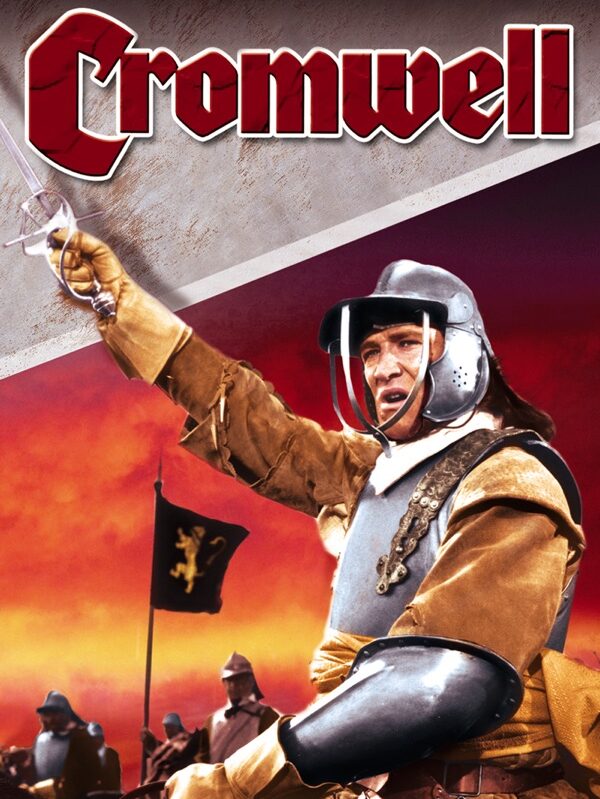
Habeas Corpus Acts (1640, 1679, 1816 …)
Habeas Corpus is Latin shorthand for “you are commanded to bring the person before the court.” It is an ancient common-law writ issued by a magistrate directing the authority holding an individual to bring the person before the court. It existed before Magna Carta but was confirmed by it in Clause 39.
The early versions of the habeas corpus writ do not protect personal liberty against official authority per se. It was only as strong as the willingness of a court to act independently of the Monarch. From Henry VII onwards, habeas corpus began to be employed on behalf of persons imprisoned by the Privy Council (The Monarch’s advisory council). By the 17th century, it had been fully established as a way of checking the illegal imprisonment of people by inferior courts or public officials. It required a prisoner to be brought before a court within a set period or prove lawful detention. This guarded against illegal imprisonment and drawn-out detainment without charge.
The imprisonment of the five landowners in 1627 and other examples, demonstrated that the habeas corpus provisions of Magna Carta were not strong enough to implement the intent. Just before the Civil War in 1640 a Habeas Corpus Act was passed into law. The act encompassed many aspects to create a fairer legal system for all. It regulated the Privy Council, removing the ability of the Monarch or Privy Council to seize lands of the accused. It allowed the accused to request proof of the legality of detention before being officially charged.
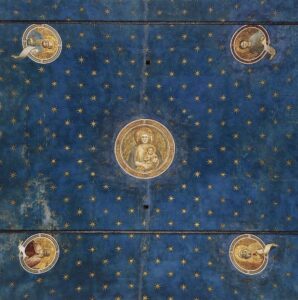
It also abolished the corrupt “Star Chamber,” a court designed to try prominent and powerful people, that lesser courts might be unwilling to convict for fear of consequences. However, such courts turned out to enable abuse of power and produce arbitrary rulings. The term “star chamber” derives from the gilt star ceilings of such courtrooms. The term has echoed down to us today as a metaphor for administrative bodies with secretive, strict, arbitrary rulings with no due process.
Moreover, the Habeas Corpus Act had harsh financial penalties for any official caught transgressing the Act, and compensation for the aggrieved party.
The revised version in 1679 is the one usually cited, which built on the 1640 version. It additionally required the Privy Council and King to comply with habeas corpus petitions from other courts. A notable exclusion from the Act was the crime of treason. The Habeas Corpus Act has been subsequently revised to strengthen its intent and broaden its jurisdiction to private authorities.
In 1816, the court’s power was extended to a review of the facts of any detention, to ascertain whether it was a lawful detention. The United States of America has enshrined the habeas corpus provision in its Constitution, with suspension only allowed during invasion, rebellion or for public safety. People of Commonwealth countries enjoy its protection by means of inheriting the English common law and the associated hard-won rights.
Habeas Corpus has recently come into the spotlight with regard to detention of suspected terrorists, for which it has been suspended in the interests of national security.
Glorious Revolution – The Bill of Rights (1689)
James II was the younger brother of Charles II. He came to the throne in 1685. James II was a Catholic and opened old wounds of religious intolerance and the divine right of Kings. He was deposed in 1688 during a bloodless revolution in which William III (of Orange) and Mary II (protestant daughter of James) were invited by the English Parliament to invade England. Accompanying that invitation to William and Mary was a Declaration of Right, essentially laying the ground rules of their rule and ensuring the primacy of Parliament. The new Monarchs agreed to the terms offered and swore a solemn oath to govern according to the laws of Parliament. They also agreed to uphold God’s laws and maintain Protestantism. In contrast, Monarchs had previously sworn to uphold the laws and customs of the land as granted by the Monarch.
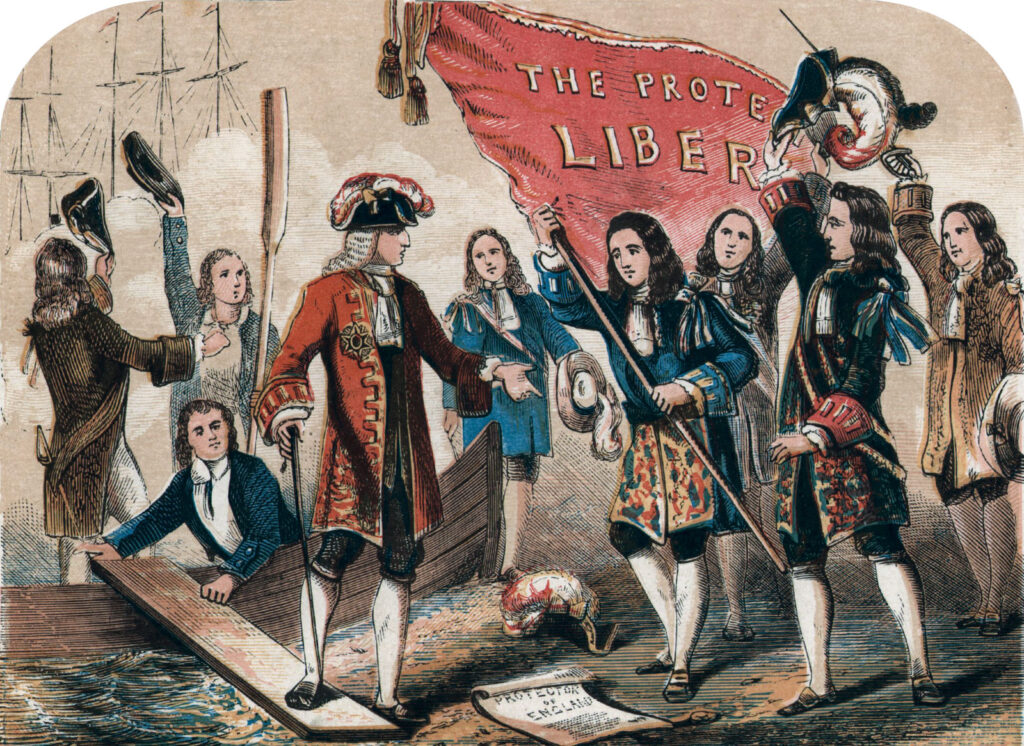
The Bill of Rights strengthened Habeas Corpus and the Petition of Right by:
- Limiting the powers of the Monarch,
- Setting out the rights of Parliament – sittings should be frequent to allow for airing of grievances, elections should be free, and free speech permitted without fear of any prosecution (inherited in section 49 of the Australian Constitution),
- Requiring that the Monarch seek the will of the people through the Parliament,
- Requiring that all taxation be approved by Parliament,
- Prohibiting excessive bail as well as cruel and unusual punishment (no more burning at the stake),
- Prohibiting standing armies without Parliamentary consent,
- Outlining James II violations of English rights and liberties, and
- Confirming that protestants may bear arms for their defence as allowed by law (Under James II, protestants had been disarmed and Roman Catholics armed).
The Bill of Rights is still in effect in Australia. It says little about individual rights but assumes that these will be protected by the Parliament as a reflection of the people’s will. Bills of individual rights are challenging and are not a feature of the Australian legal landscape, open to misinterpretation by the courts, thereby yielding less protection than if such matters remained within the purview of Parliament. The Bill of Rights described here became known as the “Rights of an Englishman,” and are now enjoyed anyone living in a Commonwealth country.
In 1690, James II attempted to regain the throne via Catholic support in Ireland but was defeated by William’s forces at the Battle of the Boyne. This can be viewed in the broader pan-European contest between the Hapsburgs and the Bourbons.
The Act of Settlement (1701)
The need for the Act of Settlement was precipitated by the failure of William and Mary to produce an heir. In the past, Monarchs had decided to whom they left the throne. In the Bill of Rights passed by Parliament, it was declared amongst other things, that the flight of a Monarch from a realm amounted to abdication. It further provided that succession should go through Mary’s sister Anne and then to those of William III by possible later marriage. Catholics and their descendants were disqualified. The Bill of Rights succession did not include the descendants of Sophia of Hanover (descendants of the Stuart Royal line) as this was blocked by the Commons. However, in 1700, Anne’s son died creating a crisis and triggering a review of the lines of succession. This review opened the way for Sophia’s son Georg Ludwig to become George Louis I of the United Kingdom of Scotland, England, and Wales.
The Act provisioned that:
- The Monarch shall join with the protestant “Church of England,”
- If a Monarch is foreign and has foreign possessions, Parliament must give consent for wars of conquest,
- Monarchs must not leave the realm of the UK without Parliamentary consent,
- All contributors to Privy Council decisions must add signatures (repealed because advice ceased to be given),
- Privy Councillors must be born in the UK,
- No person with Royal office or pension may be a member of Parliament (to avoid undue Royal influence),
- Parliament may remove judges if they do not behave (to ensure judicial independence from the Monarch).
- A pardon from the Monarch, does not save you from impeachment by Parliament.
This Act is seen as the seal on the Constitution of the UK, second in importance only to Magna Carta. The Act played a central role in the formation of the United Kingdom, for while England and Scotland had shared a Monarch since 1603, they had had separate Parliaments. The Scots were reluctant to part with their House of Stuart and passed the Act of Security allowing them to choose their own Monarch. This led to the English deciding that, for stability, full union with Scotland must be achieved before Queen Anne’s death. By politics and financial incentives (Scotland was broke after the Darien disaster), full parliamentary union was achieved within three years in 1707.
The Act remains in force throughout the realms of the Commonwealth. It cannot be altered by any realm sharing the Monarch, without the agreement of all realms. In 2011, the Act was amended by agreement of all, to remove any disqualification arising from marriage to a Roman Catholic.
Privy Council
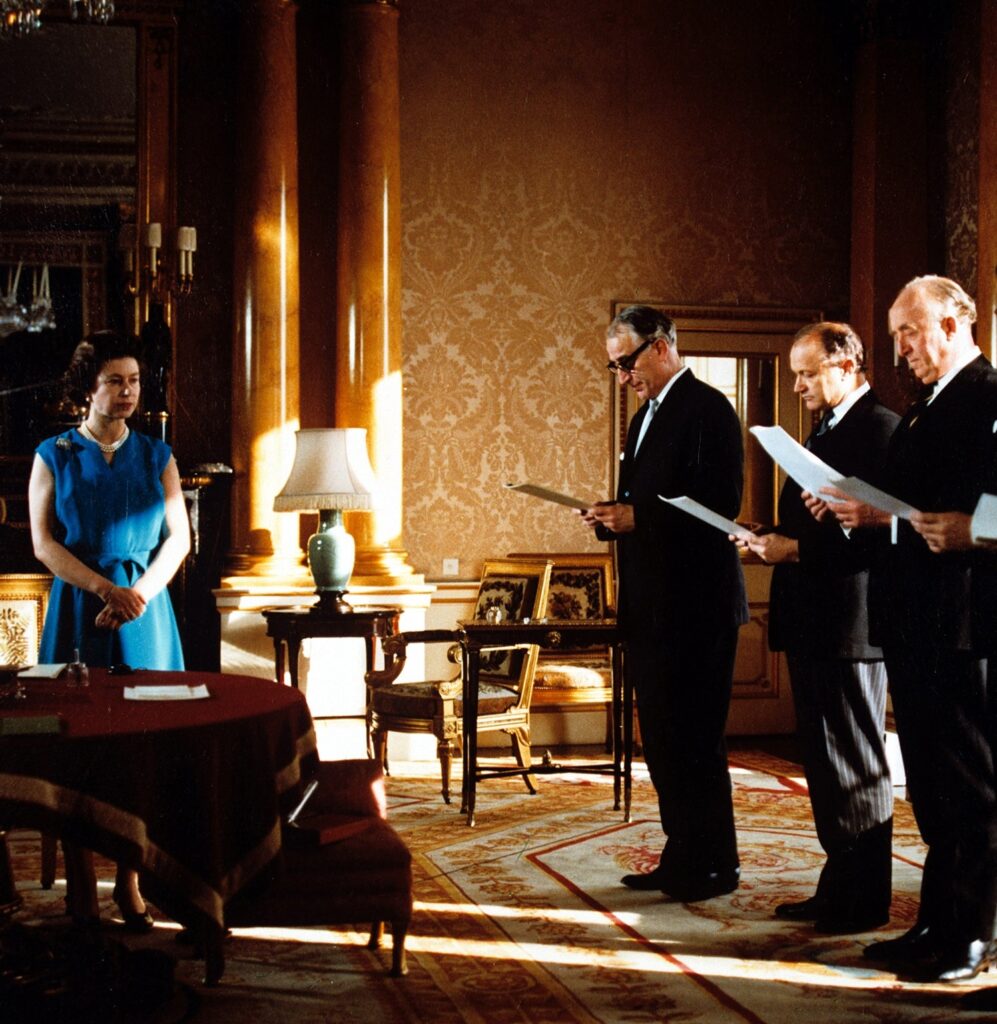
The role of the Privy Council has been diminished over time. Australia removed the Privy Council as the highest court of appeal in 1984, replacing it with a seven judge High Court. Australians ceased to be British subjects at that time but remained subjects of the Queen. In Britain, a similar course was taken in 2005, with the creation of a Supreme Court.
This is potentially an issue because Constitutional Monarchies have traditionally relied on the Monarch to adjudicate on constitutional matters and serve as the ultimate protector of the subjects’ liberties. Such a significant change pulls at the fabric on which the charters were constructed. Only time will tell whether such changes ultimately dissolve the hard-won freedoms established with much blood and over many centuries, and perhaps precipitate civil unrest.

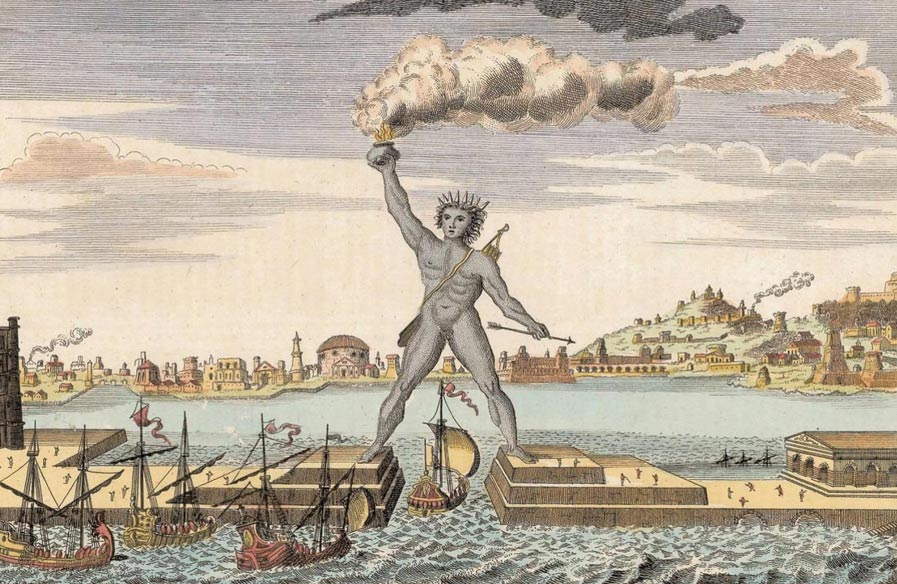
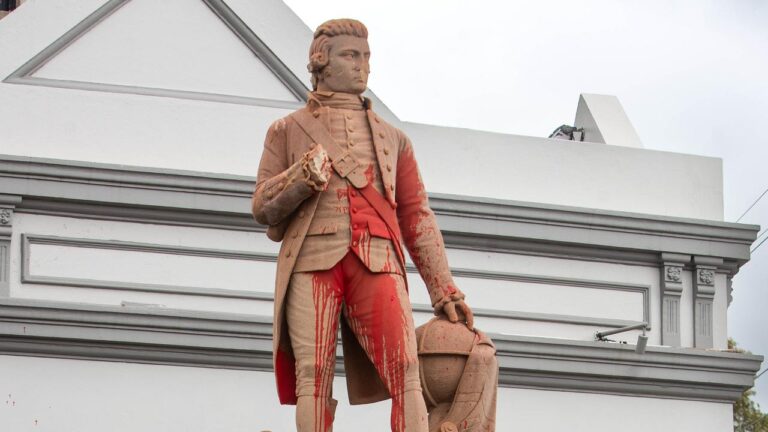


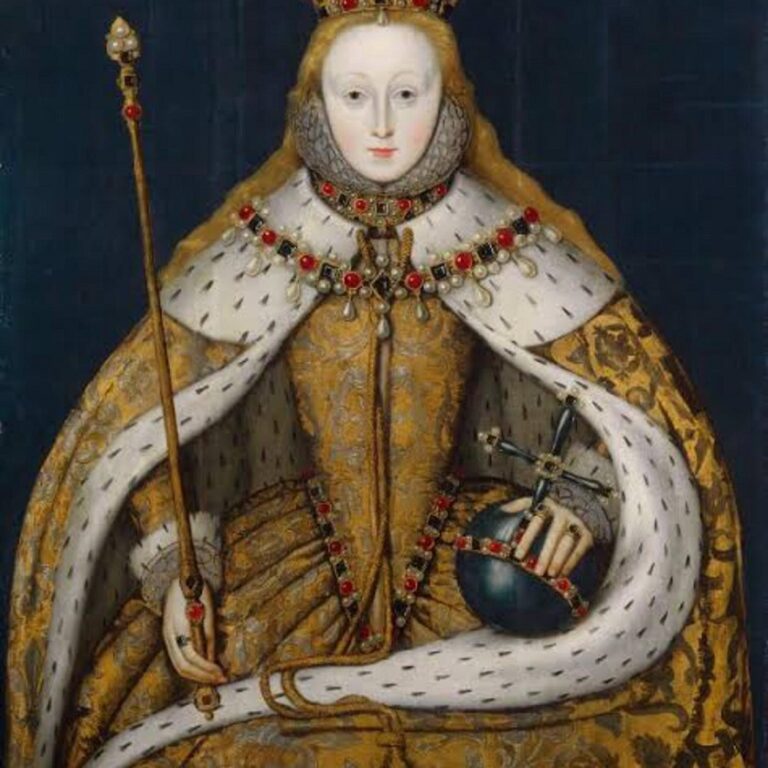
Hi there, just became alert to your blog through Google,
and found that it’s really informative. I am gonna watch out for
brussels. I’ll appreciate if you continue this in future. Many people will be benefited from your
writing. Cheers!